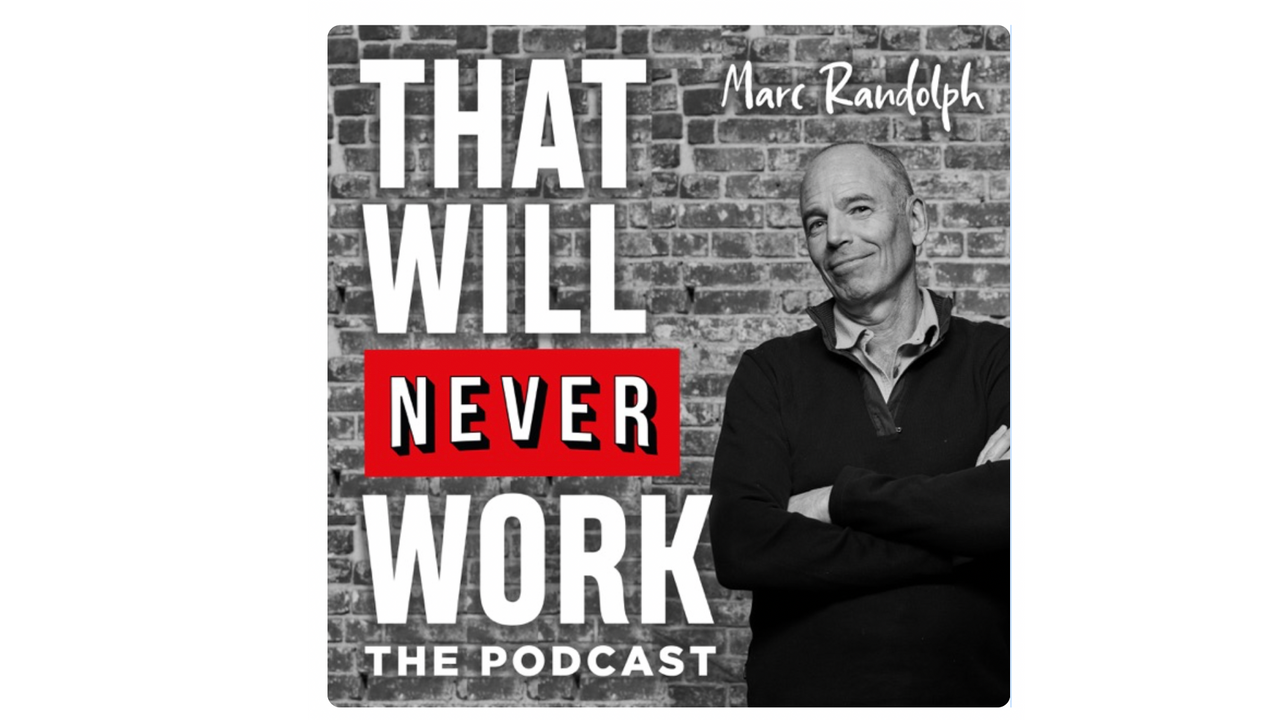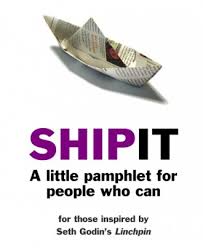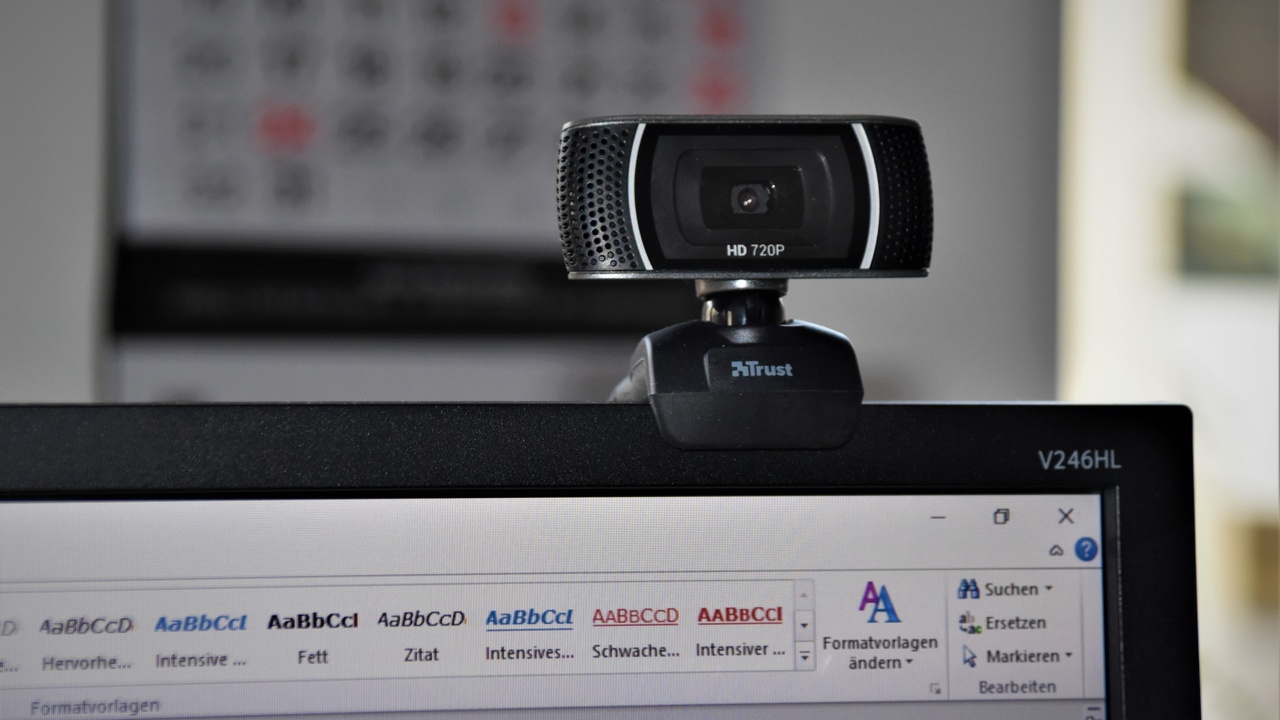Marc Randolph: How to Develop Ideas Like Netflix

Everyone who has ever taken a shower has had an idea. It's the person who gets out of the shower, dries off, and does something about it that makes a difference.
Nolan Bushnell, founder of Atari
There’s No Such Thing as a Good Idea
You’ve no doubt heard the phrase, “there’s no such thing as a bad idea.” I’ve said it many times myself in brainstorming sessions to encourage expansive thinking. The fastest way to close the creative spigot is to criticize someone’s idea.
But I learned an alternative view of ideas while listening to an interview of Marc Randolph, the co-founder and first CEO of Netflix, on the Tim Ferriss Podcast.
Influenced by his development of Netflix, Randolph said his thinking evolved over the years about the lack of inherent value of ideas:
I am firmly convinced there’s no such thing as a good idea. Every idea is a bad idea. No idea performs the way you expect once you collide it with reality. And the more I learn, the more I believe that it’s true.
And what that has forced me to do is say, ‘I’ve got to stop thinking about things and I’ve got to just begin doing them, because that’s the only way I’m going to figure out whether it’s a good idea or a bad idea.’
It’s hard for people because people don’t like to fail. They want their experiments to work, and so they do this terrible thing where you keep it in your head, where it’s safe, and where it’s warm, and where you can embellish it, and it’s a great idea, as long as it’s all imaginary and in the safety of your head.
It can grow and you can add on divisions and you can pivot it into new areas, and you’ve built this huge castle in your mind. And then if you ever decide to do it, of course, it’s way too big and too complicated to do.
Developing the Idea of 'Netflix'
Randolph described the development of Netflix as a classic case of idea evolution through testing.
He and Reed Hastings, Netflix co-founder and current CEO, in the mid-1990s were looking to start a new business. Hastings, who was going to go back to school, would fund the start-up and Randolph would run the company.
During their commutes together, Randolph pitched many, many ideas, such as customized shampoo and customized dog food, that were rejected. One idea that they considered was entering the video rental market, which was a $6 billion category dominated by Blockbuster. They rejected the idea because, in 1997, video rental was on VHS cassette, too bulky and expensive to mail.
But, Randolph explained, the idea resurfaced for testing:
…. here’s the thing I was talking about good ideas, bad ideas. One day we heard about this technology called a DVD, and we were in the car talking about DVDs, and it’s small, and it’s light, and it’s thin, and then the idea popped in our head that maybe we could mail DVDs to people, that this might dust off that old video-rental-by-mail idea.
But rather than saying, “What a good idea, let’s do some research,” rather than rushing to the office and working on a business plan, rather than putting together a pitch deck, we just turned the car around mid-commute and drove back down to the town we lived in and tried to buy a DVD.
And of course, there weren’t any. It was in test market, so we bought a used music CD and mailed that to Reed’s house in Santa Cruz for the price of a postage stamp. And the next morning, we learned, is it a good idea or a bad idea? Because he had gotten this CD, that had got to his house in less than 24 hours for the price of a postage stamp.
And that was a way of knowing, is it a good idea or a bad idea? And I have seen that play out a thousand, if not a thousand, a million times. We are constantly surprised. The one you think is great is terrible. The one you think is terrible is great. It’s impossible to know until you try it.
'That Will Never Work'
Randolph also notes that it’s critical to focus on what you learn from your own tests and not on the opinions you hear from others. He says everyone he pitched the Netflix idea to, including his wife, said, “That will never work.” And it didn’t work until it was tested and reshaped by the marketplace.
That’s why Randolph titled his book and a new podcast, That Will Never Work.
If Randolph and Hastings hadn’t taken this approach of “colliding ideas with reality,” there would be no Netflix, which today is valued at nearly $250 billion, the world’s thirty-second-most valuable company.
Randolph’s advice is helpful for all of us, especially during the pandemic when we need to reinvent so much of our lives and businesses. If you have an idea, take a small action to test it, and keep testing until you find what works.
For more advice, check out my 2015 article, Turning Your Ideas into Action.

One of the books I recommend in that article is a free 26-page PDF called The Ship-It Journal by prolific author Seth Godin. This project workbook is an off-shoot of his excellent book Linchpin. It’s a comprehensive and insightful process for evaluating and completing any project. I’ve used it as a great results tool with teams.
Key idea: Set a deadline for yourself and your team for “shipping” the project. Let nothing deter you from that deadline. You can get the free download here.
Setting clear goals and deadlines can make a huge difference in your focus and results, but it all comes down to action, in business and life.
If you found value in this article, please share it with someone who might benefit. You can get these articles in your email every Sunday more by subscribing to my free newsletter.
Image Credits: Marc Randolph, Netflix, Seth Godin, Texas 394th Judicial District Court
We recommend products and services we trust. Some of the links in this article may provide us with a small commission, though you will pay the same low price.









